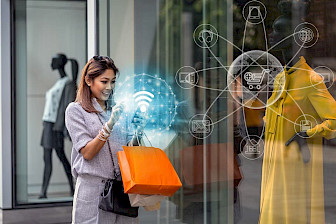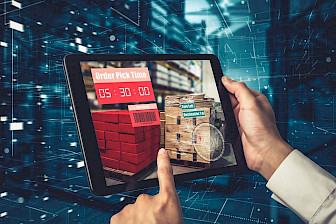The omni-illusion: why customers ‘disappear’ in-store

A new report from iVend Retail and Venistar reveals that consumers are increasingly disappointed by the in-store experience when compared to online.

Bricks-and-mortar stores could well be the ‘weak link’ in the omnichannel chain, a new report from Venistar and iVend Retail, a leading global retail solution brand, warns.
The report – ‘Omni-Illusion: why are customer connections disappearing when shoppers reach the store?’ – reveals that, despite retailers’ efforts to integrate the omnichannel experience, consumers are increasingly disappointed by the in-store experience when compared to online.
While retailers can build an extremely detailed digital picture of a customer online, such as buying preferences from previous purchases, allowing them to better meet that individual’s on-going needs, this information is ‘disappearing’ when the customer enters the store.
Research from the report reveals that while 51% of UK consumers still mostly shop in bricks-and-mortar outlets, 40% thought they were more likely to have a disappointing experience in the store than online. One in 10 even said they felt like a retailer’s ‘friend’ online, but anonymous in the store.
This, the report suggests, has been borne out of a number of challenges as retailers have sought to ‘retro-fit’ the store into their omnichannel strategies; from embracing changing consumer mindsets (shoppers now bring a greater level of knowledge into the store, as 68% research purchases online before they reach the aisle) to the high levels of personalisation customers have become used to receiving online and which they now expect to be mirrored in the physical environment.
52% of UK consumers would like retailers to have a ‘single view’ of them, which combines their online and offline shopping habits. To achieve this in the store environment, retailers need the technology to bring digital capabilities to the shop floor, utilising customer data and operational information to better tailor the in-store experience.
By making product recommendations in a timely manner based on previous transactions, extending stock availability beyond the shelf edge and placing online orders to a customer’s preferred delivery or collection point, the store can start to behave in the same informed, flexible manner as online shopping, helping retailers improve omnichannel conversions.
“Our research shows that 62% of consumers don’t differentiate between channels; they just shop using the option that’s most convenient to them at the time – be it online, in-store or via a smartphone device,” said Richard Kolodynski, Senior Vice President of European Operations at iVend Retail. “This makes delivering a seamless experience all the more important. Shoppers don’t separate channels, so retailers must ensure fluidity and visibility between them and this is, traditionally, where the store has found it hard to keep up with online".
“The key for retailers when it comes to driving conversions and keeping customers happy will be ensuring shoppers aren’t let down by their experience when they arrive into store,” he concluded.






